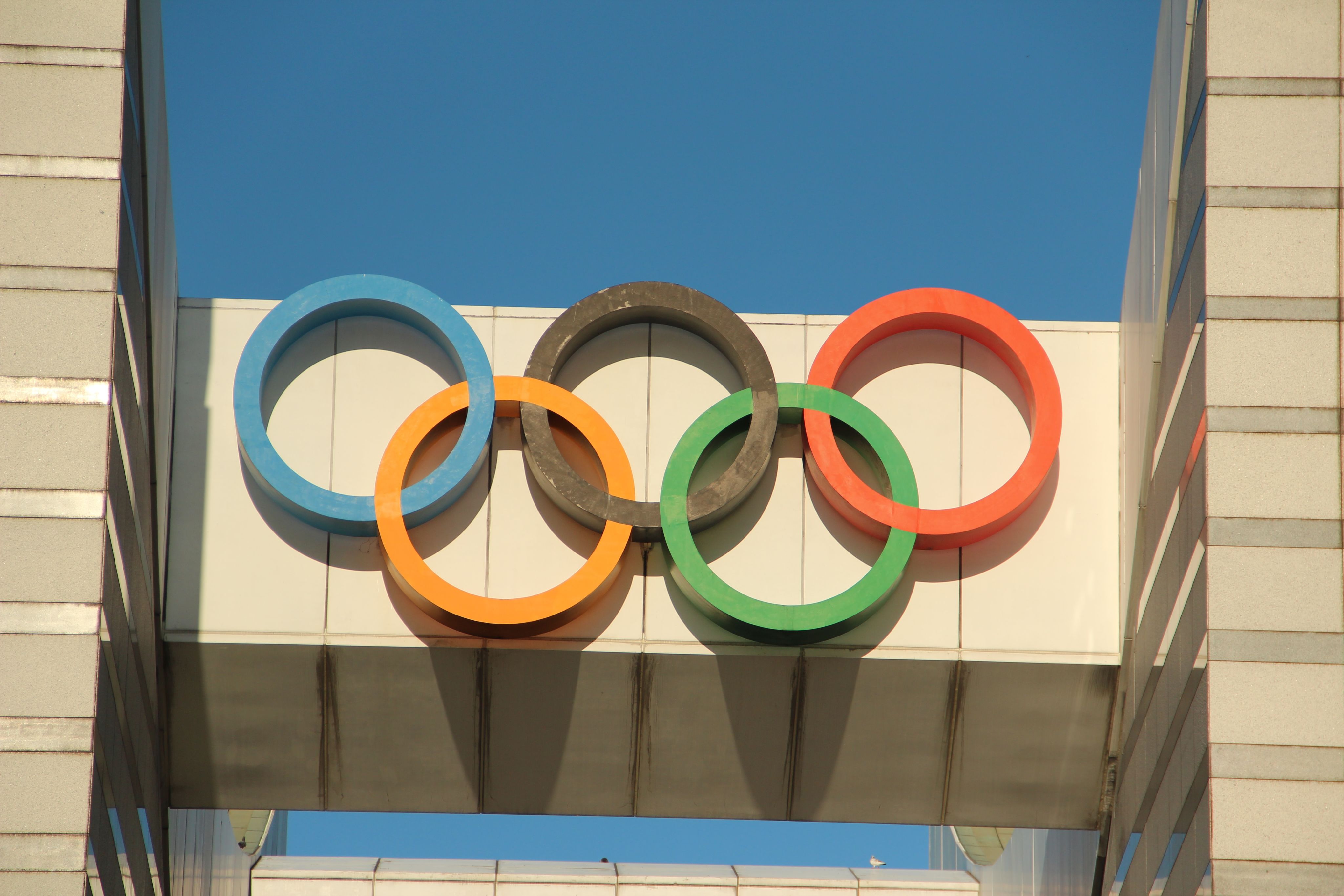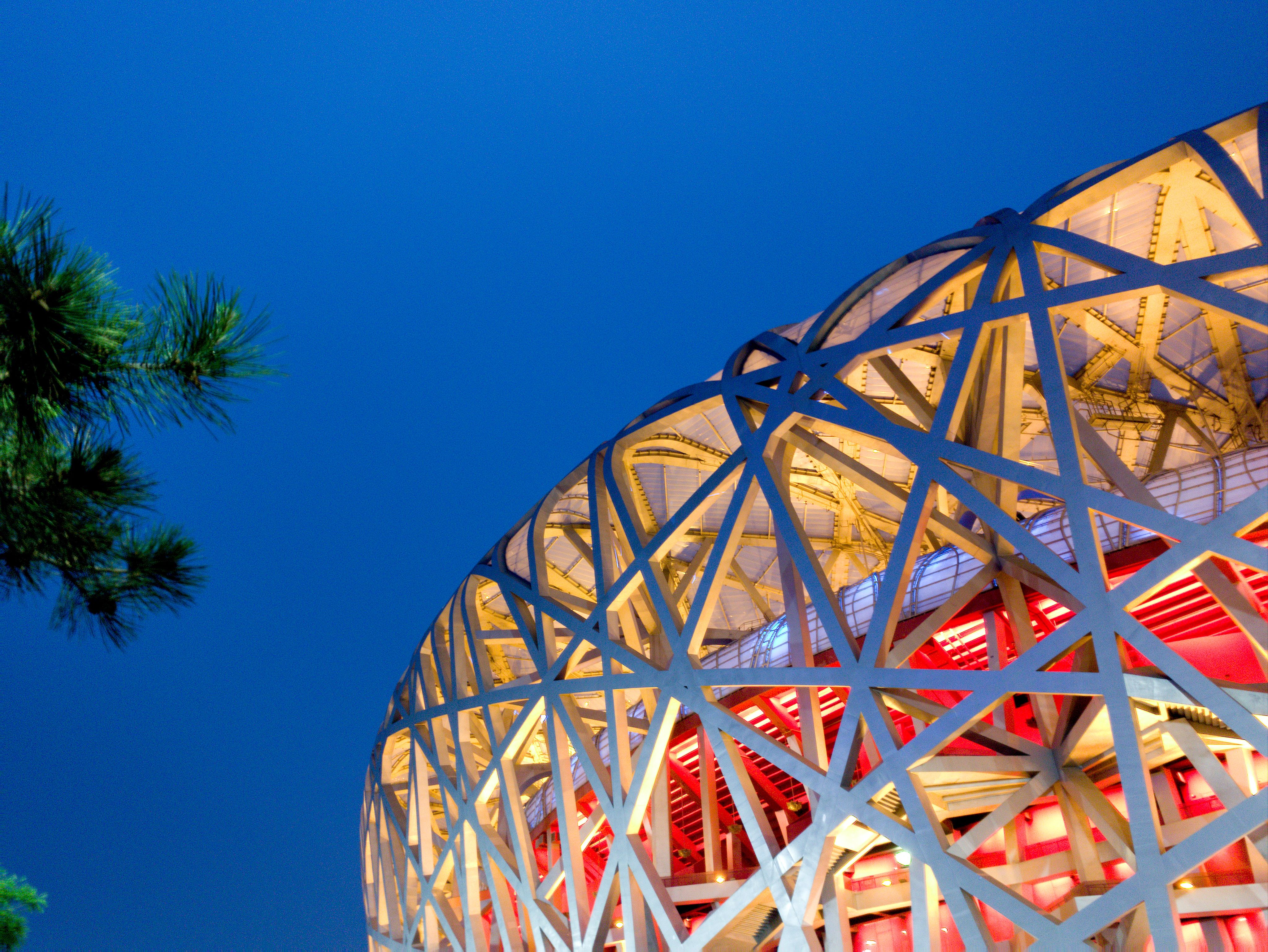Explaining the impacts of artificial snow at the 2022 Beijing Winter Olympic Games
Why this year it's more than just winning gold medals

The 2022 Beijing Winter Olympics and Paralympics kicked off on February 4 and a lot of attention has been drawn to the games.
But why is it more than just winning gold medals this year?
Beijing becomes the first city to host both the Summer and Winter Olympic Games, but also the first to be held within a summer season.
How can you host the Winter Olympics when snow doesn't fall in Summer?
The answer is fake it.
Beijing will be using 222 gallons of water to produce enough artificial snow for the games to rely nearly 100 'per cent' on it.
The "Slippery Slopes" report by Loughborough University raised concerns about how the artificial snow which has been produced for the games holds environmental dangers towards the vegetation within the area.
According to TechnoAlpin, who are behind the snow making project, they explained there will be enough to fill 400 Olympic sized swimming pools at just the beginning of the games.
More snow will need to be created.
To create the fake snow, chemicals and biological additives will need to be added to create the artificial material also risking disruption to vegetation and decreasing biodiversity.
So why have the Games in China?
China was seen as a safer pair of hands as they had held the Summer Olympics in 2008. The other contender for hosting the Games was Almaty, a city in Kazakhstan, where they still have snowy winters.
After 21 possible venues since 1924 only 10 are now suitable for the Games due to climate changes.
How will China get this amount of water up into the mountains of Zhangjiakou and Yanqing to produce the snow?
TechnoAlpin reported they will be installing pumps and 40 miles worth of pipe costing nearly £60 million.
China has pledged for the games to be delivered green and clean. Chinese Officials added they will be attempting to limit the impacts of snow making and the energy used will be renewable.
However, the author of the Loughborough report stated: "Even if powered by renewables, a huge amount of energy is needed which is both costly
and can be a significant drain on water resources."
Beijing is reported as one of the most water-scarce cities and declines further as a result of reoccurring droughts.
Are there any other worries about the artificial snow at the games this year?
The report created by Loughborough University also raised how the artificial snow could create a greater risk to competitors safety.
The risk comes from the surface of the artificial snow being icier and therefore becoming faster and harder.
Winter Olympic fans and supporters have raised concerns surrounding the safety of the competitors at Beijing this year.
Leila Hughes- Discussing artificial snow at the Winter Olympics 2022.
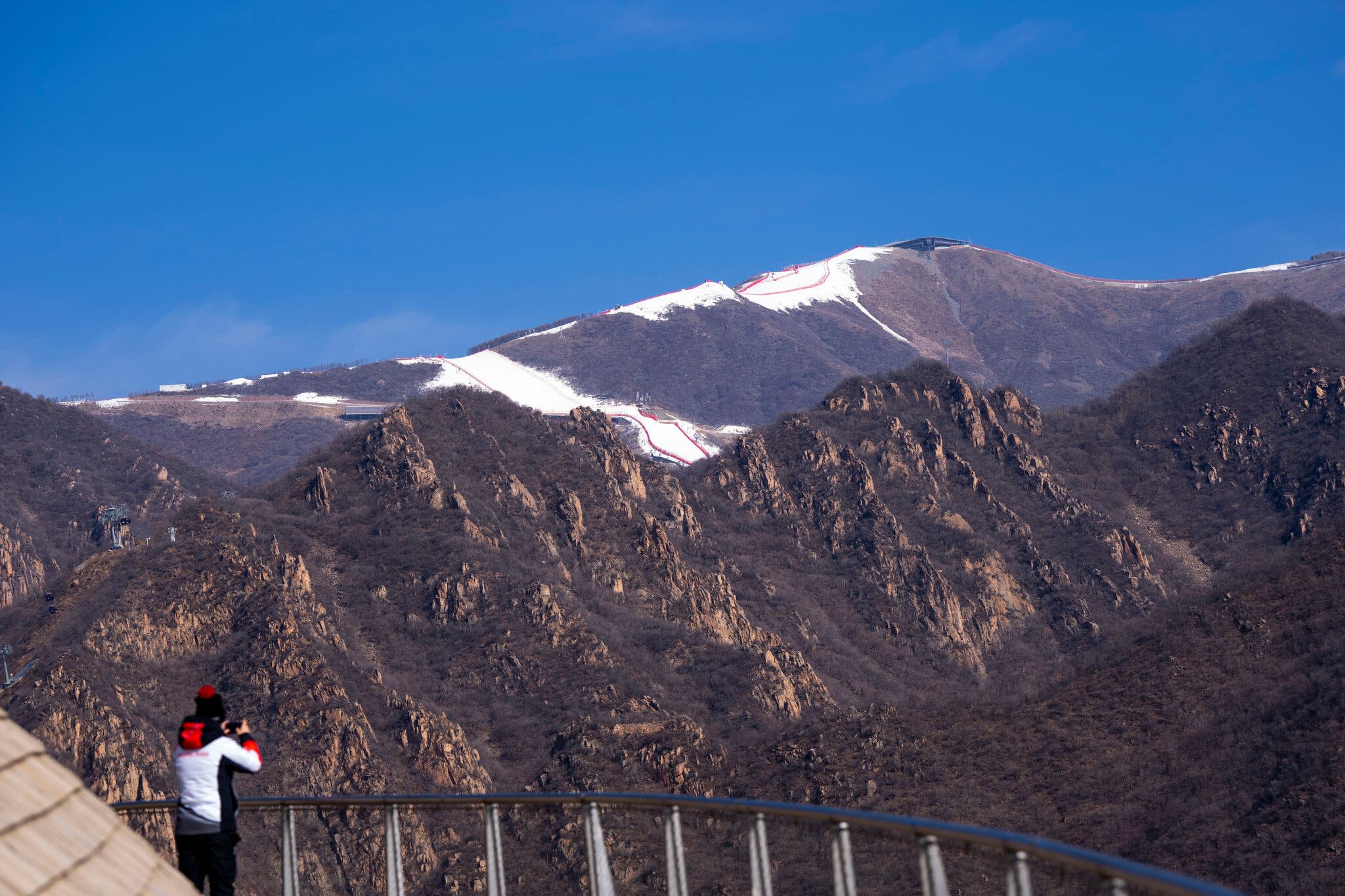
Photo by Sebastian Staines on Unsplash
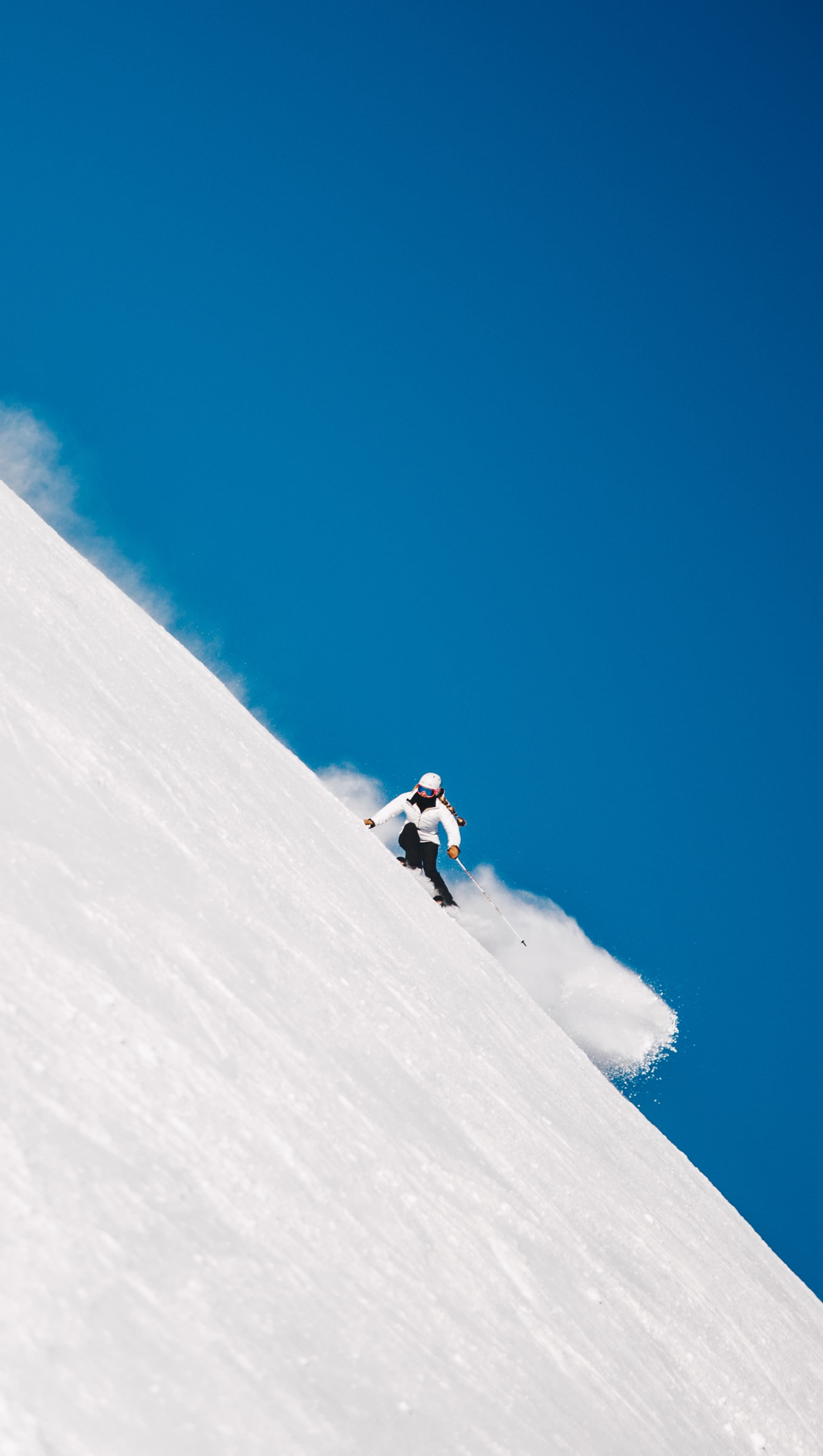
Photo by Nicolai Berntsen on Unsplash
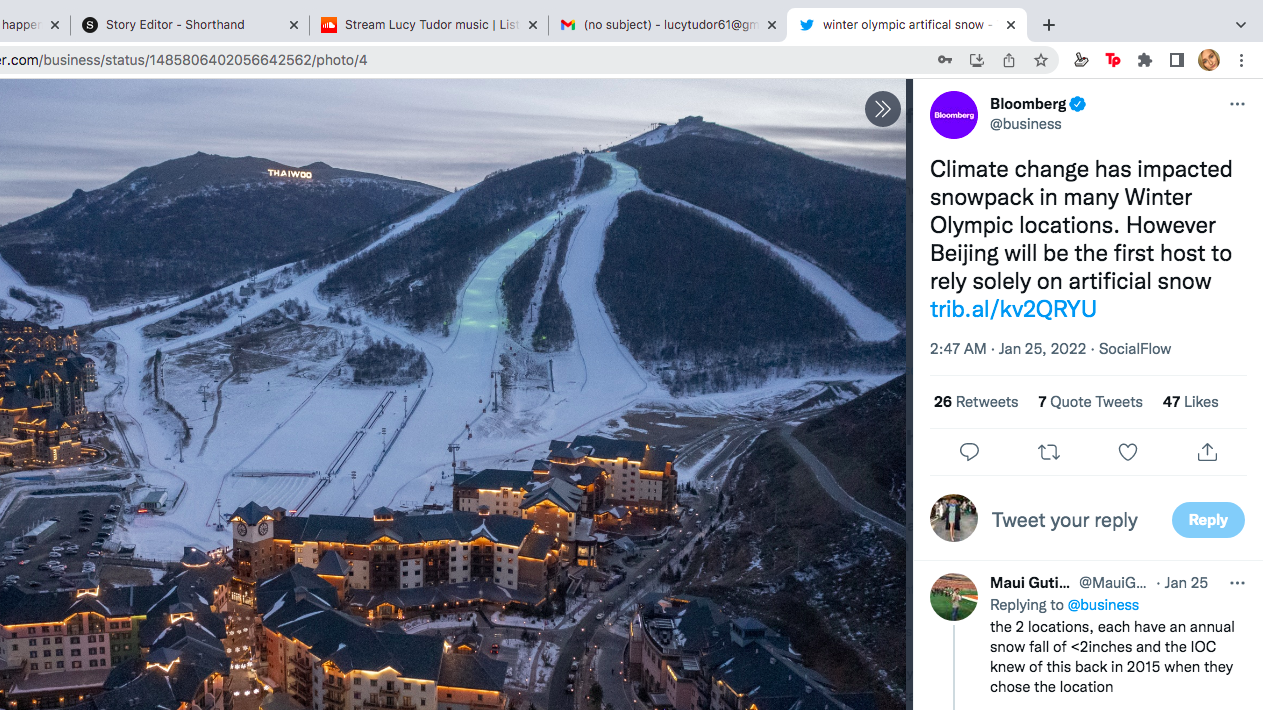

Tweet from 'Bloomburg Business'. A photo showing the artificial snow on the mountains of the Winter Olympic Games 2022.
Tweet from 'Bloomburg Business'. A photo showing the artificial snow on the mountains of the Winter Olympic Games 2022.
Are China making efforts to keep to their pledge?
China had pledged for the Games to be powered purely by wind, hydro and solar energy to keep to their pledge of a Green Games, but they are also making other efforts.
The Games have been split into 3 zones to host the events. They are Beijing, Zhangjiakou and Yanqing.
To minimise traffic and pollutants such as carbon dioxide, China have introduced the driverless Fuxing Bullet Train which will travel between the three zones of the Olympic and Paralympic Games.
What is different about the Fuxing Bullet Train?
The high speed train will be able to reach a maximum speed of 350 km/h.
This will bring the usual 3 hour long train trip between Zhangjiakou and Beijing down to just 50 minutes. It will then make the journey between Yanqing and Beijing a 20 minute train, which would normally take close to an hour.
The high speed railway service has been in service from 21st January to 16th March.
The Fuxing Bullet Train is to be the first transport vehicle to also feature a 5G live broadcast studio.
The train will be able to carry 564 people in one trip. This could save 141 average car trips per train journey.
But what does this mean for our planet?
As the Games continue through the coming weeks the conversation surrounding the environmental factors is one which should not be disregarded.
As climate change becomes a growing concern and the earth gets warmer, artificial snow may become the new normal for the Winter Olympics changing the future of the Games for good.
The growing need for the use of artificial snow for winter sports raises awareness to how the planet is quickly changing.
Although some efforts are made to attempt to create a more environmentally friendly Olympics, the need and efforts for 100% reliance on artificial snow leaves China's pledge feeling unfilled.
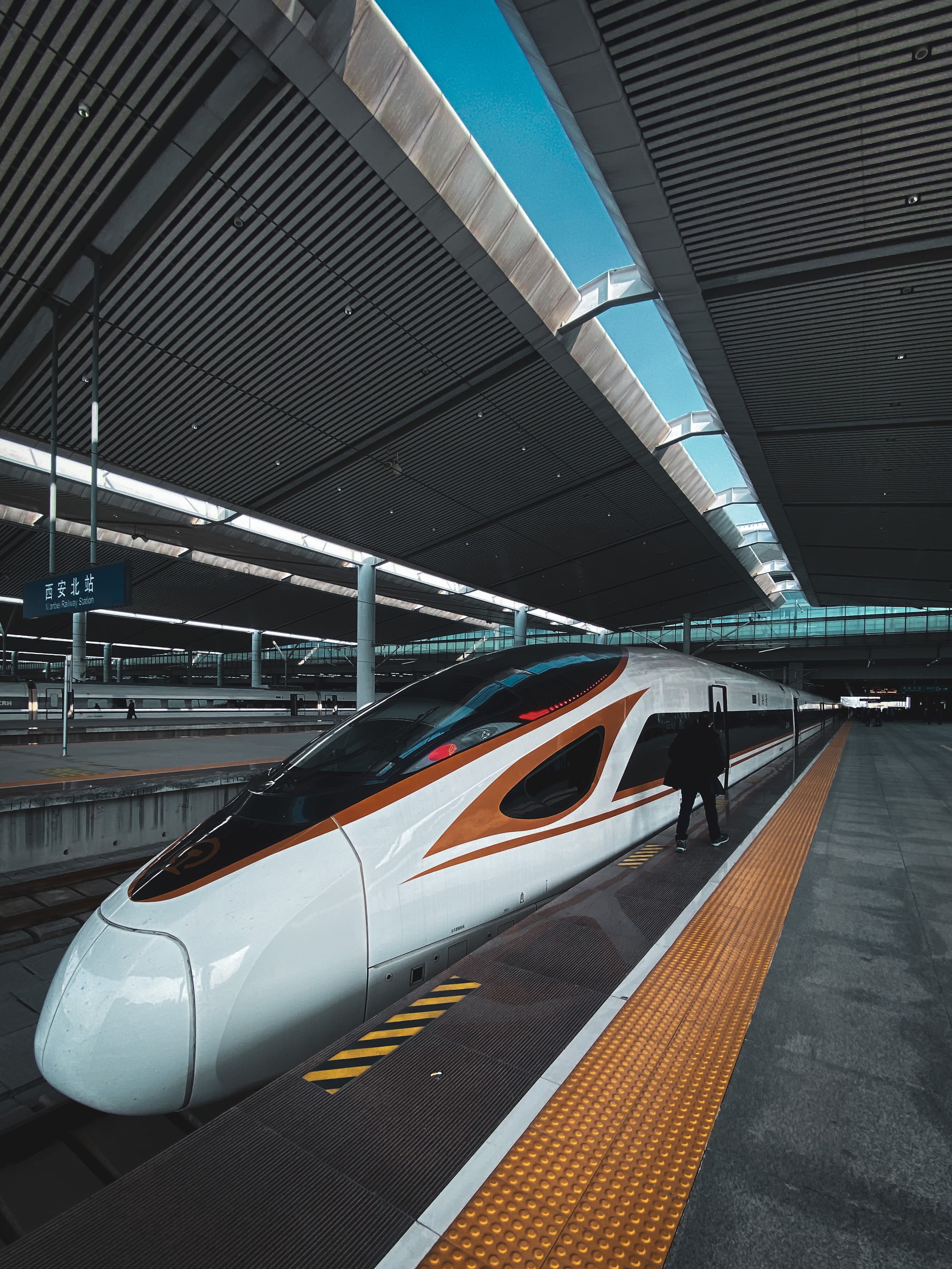
Photo by Bao Menglong on Unsplash
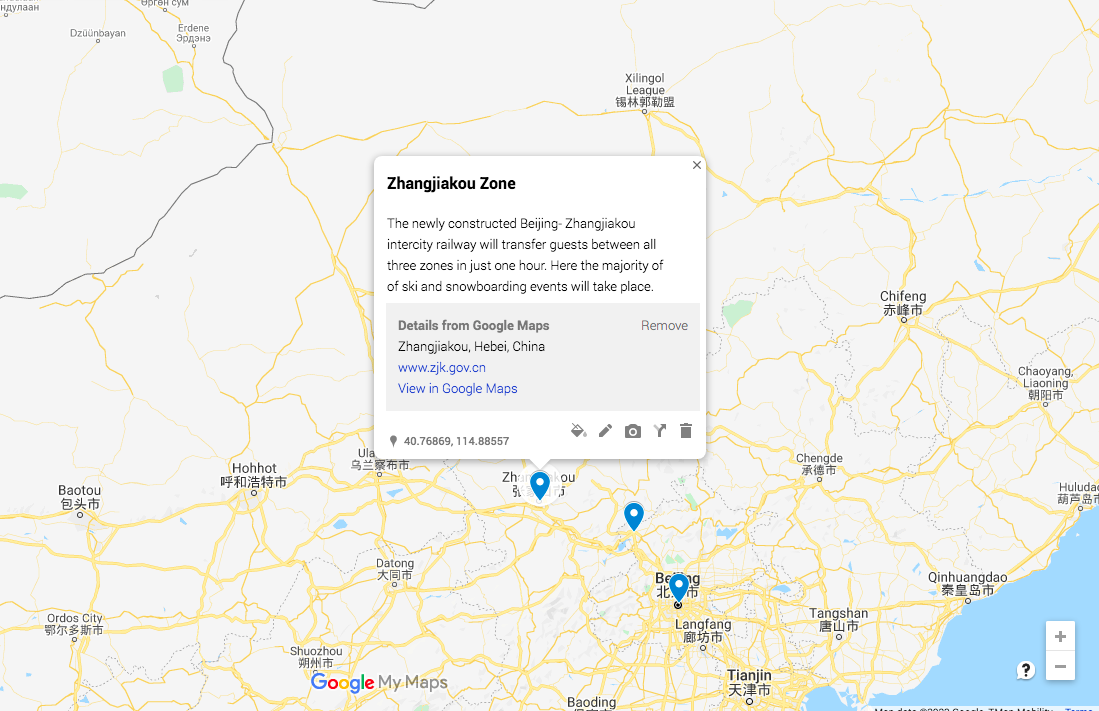
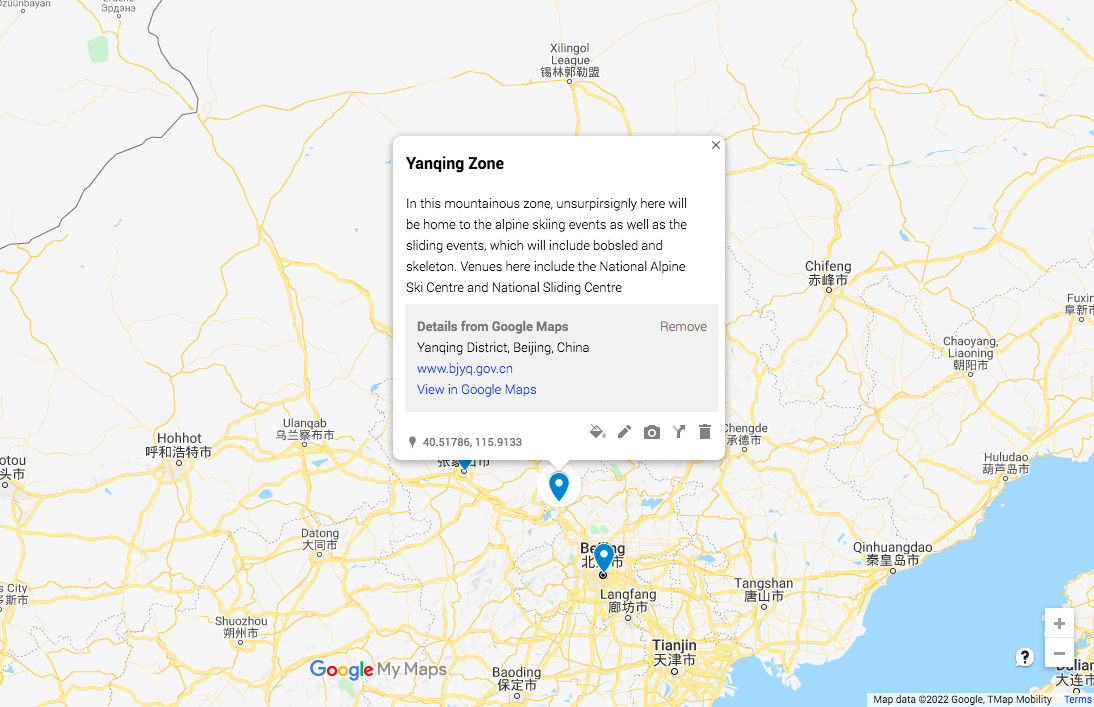
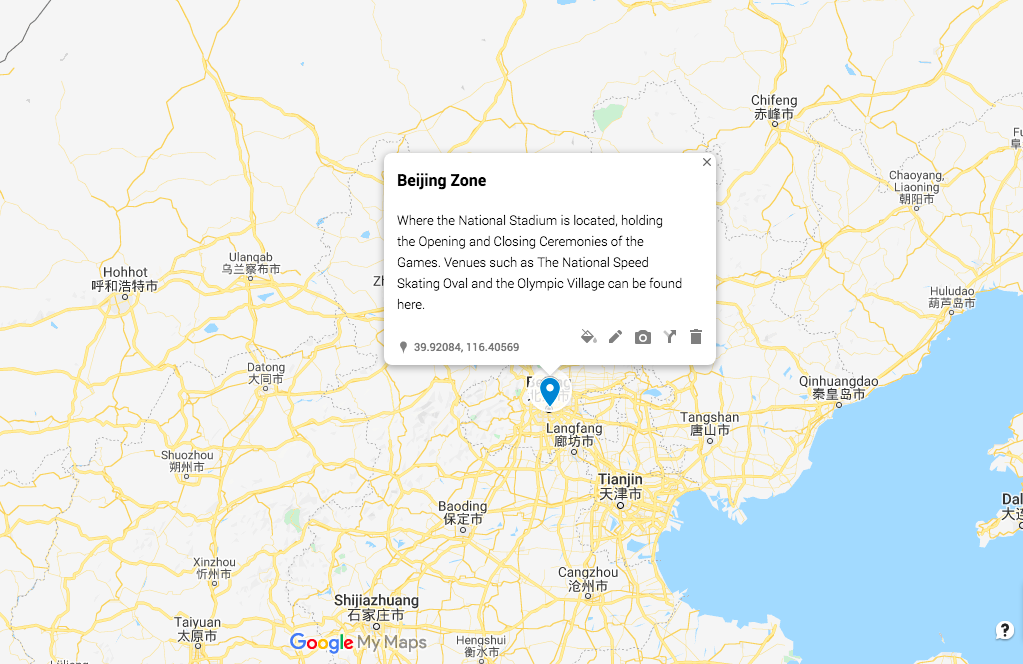

The Zhangjiakou Zone. Credit Lucy Tudor
The Zhangjiakou Zone. Credit Lucy Tudor

Yanqing Zone. Credit- Lucy Tudor
Yanqing Zone. Credit- Lucy Tudor

Beijing Zone- Credit Lucy Tudor
Beijing Zone- Credit Lucy Tudor
